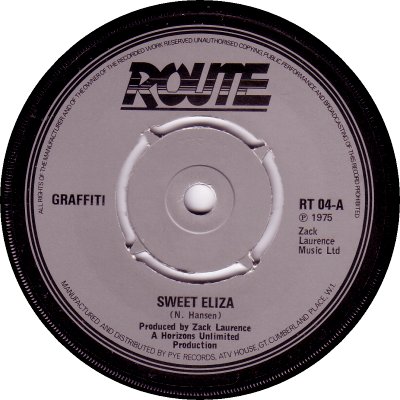
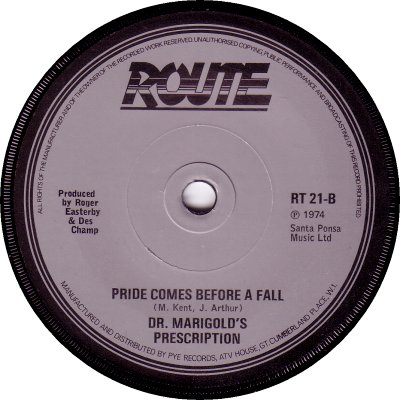
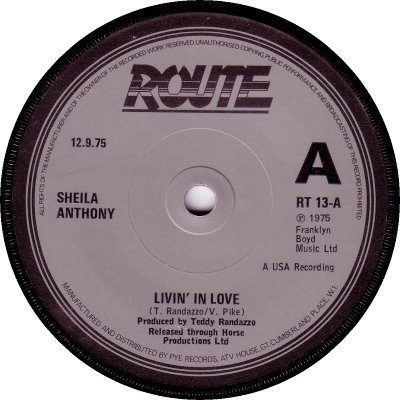
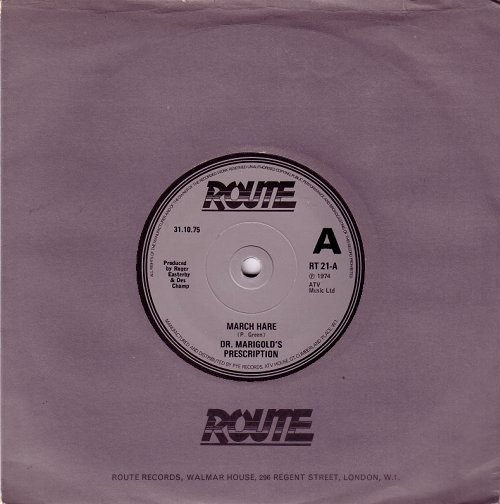
The successor to Roger Easterby and Des Champ's 'Santa Ponsa' label. Route operated out of premises at Walmar House, Regent Street, London, and it came under the Pye Records umbrella, as Santa Ponsa had done. It received its sole mention in the Trade press in 'Music Week' of the 8th of March 1975, which said that Easterby and Champ had set it up to replace Santa Ponsa. The article added that Route would function as an independent company but that selling, manufacture and distribution would all be handled by Pye. A majority of Route's records were Easterby & Champ productions, but the team of Martin Jenner & Dave Green chipped in with half a dozen singles and a fair number of sides were licensed from American labels. Catalogue numbers were in an RT-00 series. Route continued to look for hit Pop singles, as Santa Ponsa had done, and several of the artists who had appeared on Santa Ponsa reappeared on Route. It did however have a Soul / Dance side to it, which its precursor hadn't, and of the thirty singles which it put out, between March 1975 and April 1976, a reasonable proportion were aimed at that market. They included both licensed material, such as 'Get Out' b/w 'You May Not Love Me' by Harold Melvin & The Bluenotes (RT-06; 5/75), and home-produced things such as 'Let's Go Funk' b/w 'A Time For Loving' by the Dezro Orchestra (RT-29; 4/76). As had been the case with Santa Ponsa, Route enjoyed a solitary Top 30 hit and it wasn't one of Easterby & Champ's own productions: 'The Flasher' b/w 'Life Is A Song Worth Singing' by Mistura featuring Lloyd Michels (RT-30; 4/76) climbed to the No.23 spot. It proved to be Route's final release, so at least the label went out on a high note.
Route's label design remained basically the same throughout its existence (1), the only change of note being that in October 1975 the artist and producer credits swapped places (2) - RT-18 was the first single to have the new arrangement. For the very last single, RT-30, they swapped back again. Promo copies were marked with a modest black 'A' and the date of issue (3). Manufacture and distribution were by Pye from start to finish. 'The Flasher' proved popular enough to be re-pressed / reissued on Pye, with the same catalogue number, presumably after Route had ceased to be a going concern. Champ and Easterby seem not to have worked together after 1976, so it may be that the end of their partnership spelled the end for Route.
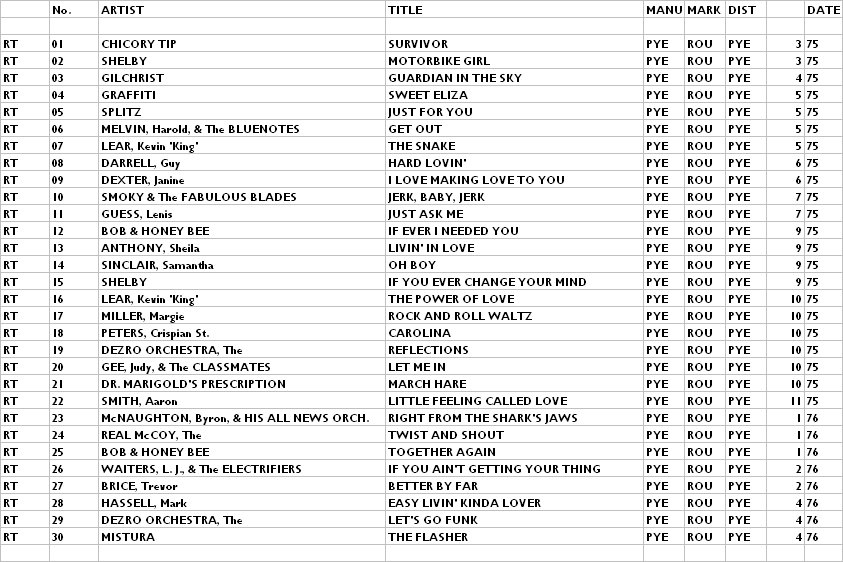


Copyright 2006 Robert Lyons.

